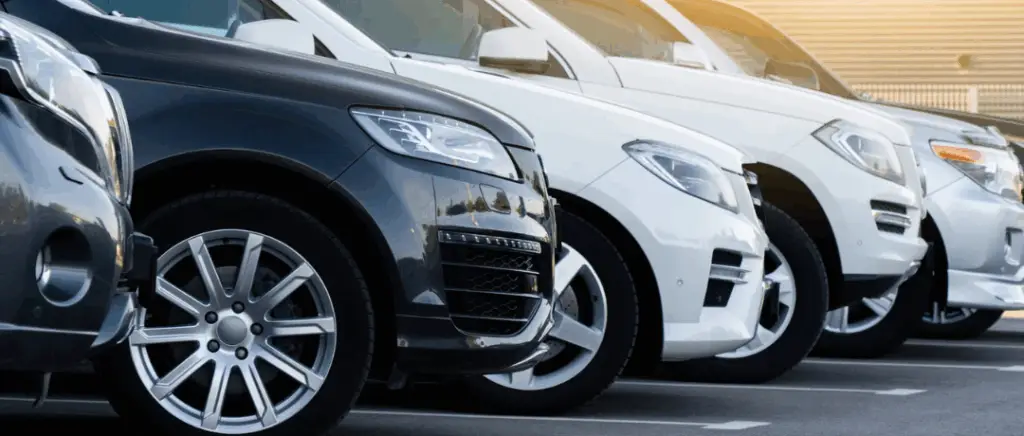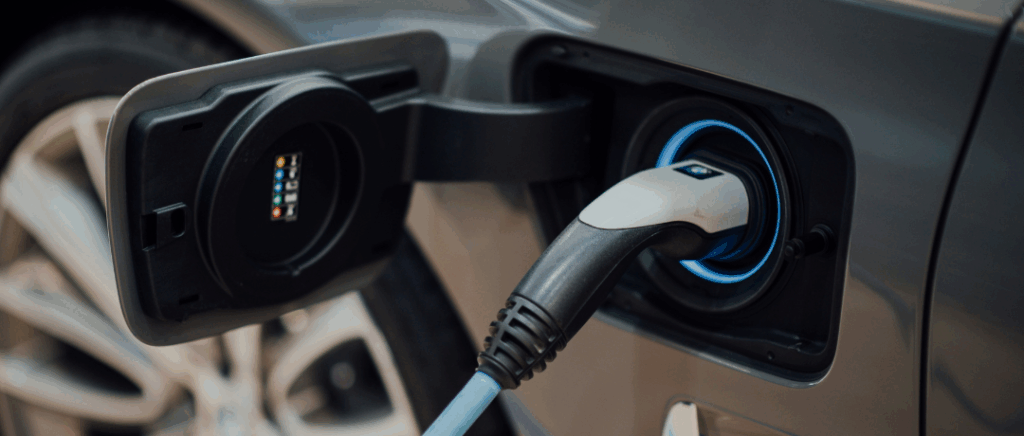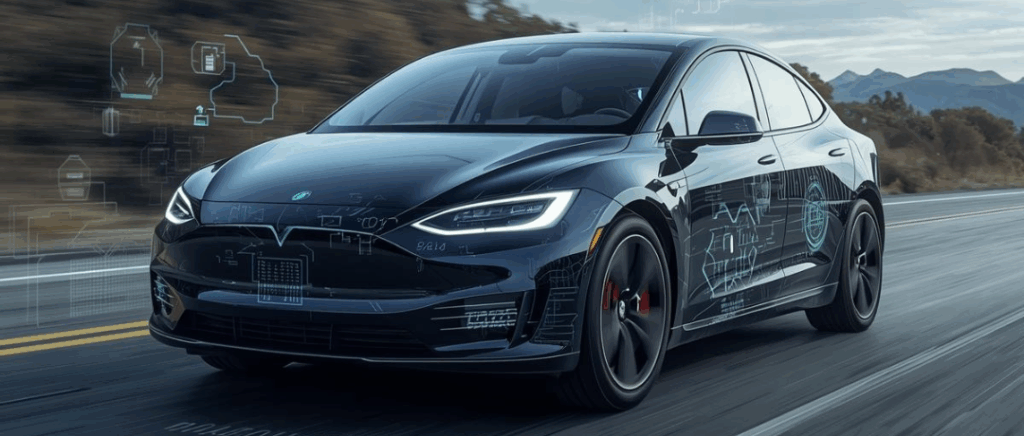What is VAT on company cars and why is this becoming a strategic issue for businesses?
VAT on company cars refers to the value added tax applied to the acquisition, hire or provision of passenger cars by a company for the benefit of its employees. Until recently, VAT recovery on these vehicles was very limited: only commercial vehicles were eligible for deduction, while passenger cars, even electric ones, were excluded, barring very specific exceptions.
Since 2025, a major turning point has been reached with the publication of a new tax ruling bringing French doctrine into line with European case law: from now on, if the provision of a company car gives rise to identifiable consideration (deduction from salary, fixed rate for use, etc.), the company can reclaim all the VAT on the purchase or leasing of the vehicle, including passenger cars.
Why is this becoming a strategic issue? :
- Tax optimisation: The possibility of reclaiming VAT transforms the company car into a lever for optimising costs for the company, particularly for electric or hybrid vehicles, which are often more expensive to purchase.
- Regulatory adaptation: Recent tax changes (Finance Act 2025, tougher taxes on polluting vehicles, redefinition of tax categories) are forcing companies to review their fleet policies to remain competitive and compliant.
- Competitive advantageOptimised VAT management makes it possible to offer attractive company cars to employees while keeping the tax burden under control, making the company more attractive to HR.
- Sustainable mobility: The tax system encourages people to opt for low-emission vehicles, which means they can benefit from tax exemptions and reclaim VAT on electricity, while at the same time meeting CSR challenges.
Concrete solutions for businesses:
- Set up clear contracts for the provision of services in return for VAT to secure VAT recovery.
- Audit the existing fleet to identify vehicles eligible for VAT recovery and optimise the transition to electric or hybrid models.
- Adapt the internal mobility policy to incorporate the new obligations and maximise the tax benefits linked to VAT and other taxes on company cars.
In short, VAT on company cars is no longer simply a constraint: if properly managed, it can become a real opportunity with high returns for companies, provided that they anticipate regulatory changes and adopt a proactive approach to VAT management. vehicle fleet.
How can VAT on company cars generate significant savings for your business?
Recent changes to the VAT treatment of company cars have opened up new opportunities for companies to optimise their tax treatment. It is now possible to reclaim VAT on the purchase or leasing of private vehicles used by employees, provided that certain specific conditions are met. This step forward transforms fleet management into a genuine lever for savings and profitability.
Here's how VAT on company cars can generate significant savings for your business:
- Full VAT recovery If an identifiable consideration is paid by the employee (salary deduction, customary lump sum, etc.), the company can deduct the full VAT on the purchase or hire of the company car, including passenger cars.
- Deduction of ancillary costs VAT: VAT on the cost of maintenance, leasing, insurance and other vehicle-related expenses is also recoverable, subject to compliance with the conditions of professional use or consideration.
- Optimising total cost of ownership VAT recovery: By including VAT recovery, the overall cost of a company car falls significantly, which improves the profitability of investment in internal mobility.
- Adapting fleet policy Companies can review their vehicle allocation strategy (purchase vs. lease, choice of models, etc.) to maximise VAT deductibility and reduce the overall tax burden.
- Greater advantage for electric vehicles Electric vehicles benefit from an even more advantageous tax regime, with a specific allowance on the benefit in kind and lower taxation on social security contributions, making it even more attractive to opt for a clean fleet.
What are the conditions for reclaiming VAT on company cars in 2025?
The taxation of company cars will be at a turning point in 2025, with unprecedented opportunities for companies wishing to optimise the management of their vehicle fleets. The tax ruling of 30 April 2025 makes it possible to reclaim VAT on company cars, including private cars, under certain specific conditions that are advantageous for companies.
Conditions to be met in order to benefit from VAT deduction :
- Identifiable consideration paid by the employee The company must charge the employee a clear consideration for the use of the company car. This consideration may take the form of rent, a deduction from salary or an explicit financial contribution.
- Provision of services for consideration The relationship between the company and the employee must be treated as a supply of services, subject to VAT. The service must be formalised by a contract or agreement specifying the terms and conditions of the provision of the service and the amount of the consideration.
- Compliant invoicing and supporting documents Invoices: It is essential to produce invoices or accounting documents proving that the consideration has been received and the nature of the service provided. These documents will be required in the event of a tax audit.
- Professional use of the vehicle The vehicle must be registered in the company's fixed assets register and used in the course of the business. VAT can only be reclaimed on vehicles that the company owns or leases on a long-term basis.
- Exclusion of personal vehicles VAT: VAT cannot be reclaimed on employees' personal vehicles or on vehicles that are not registered as company assets.
Legal framework and official tax doctrine :
This development is based on key case law from the Court of Justice of the European Union (CJEU), in particular the QM ruling (C-288/19), which recognised the possibility of recovering VAT on private cars made available to employees for business purposes, subject to the existence of identifiable financial consideration.
Following this case law, the French tax authorities formalised this position in a tax ruling published on 30 April 2025.
This official recognition gives businesses a clear framework for securing VAT recovery, in compliance with European and French regulations.
Key points to remember to maximise benefits :
- This new tax doctrine paves the way for major tax optimisation, enabling VAT on the purchase or lease of company cars to be reclaimed in full, provided that the procedure is scrupulously followed.
- As a result, companies can significantly reduce fleet costs, improve their cash flow and boost their competitiveness, while securing their tax compliance.
- For electric vehicles, VAT on recharging remains fully recoverable, providing additional leverage for businesses committed to the energy transition.
To sum up, the recovery of VAT on company cars in 2025 represents a high-yield opportunity for businesses, provided that they put in place rigorous management of the counterparts and supporting documents. This new tax framework makes it possible to reduce the financial burden associated with business mobility and optimise the taxation of car fleets.
VAT on company cars: why do electric vehicles get a bigger tax break?
Electric vehicles now offer a major tax advantage for companies in terms of VAT on company cars, thanks in particular to recent changes in tax regulations. There are a number of concrete factors behind this dynamic, which maximise the tax yield from investment in an electric fleet:
- Extended VAT deductibility VAT: Since the tax ruling of 30 April 2025, VAT can now be reclaimed on company cars, including private cars, provided that an identifiable consideration is paid by the employee (for example, a financial contribution or a deduction from salary). This measure, which is in line with European case law, marks a break with previous doctrine, which almost systematically excluded private cars from the right to deduct.
- Advantages specific to electric vehicles : Electric vehicles, by their very nature, benefit from reduced taxation on other aspects (taxes on CO₂ emissions, partial or total exemptions on certain annual taxes), which reinforces the interest of VAT recovery. By combining these advantages, the company not only optimises VAT but also reduces its overall tax burden on the fleet.
- Encouraging sustainable mobility : The aim of the 2025 tax package is clearly to penalise thermal vehicles pollutants and encourage the adoption of low-emission vehicles. In this way, companies that invest in electric vehicles are able to anticipate increases in tax and social security contributions, while benefiting from a more favourable and sustainable tax framework for their company cars.
- Optimising fleet management By reclaiming VAT on the purchase or leasing of electric vehicles, businesses can reduce the cost of purchasing or leasing them, thereby improving the profitability of their fleets and their ability to invest in innovative mobility solutions.
Electrifying your fleet to maximise VAT recovery: a winning strategy?
Today, the electrification of the car fleet represents a real tax opportunity for companies, particularly in terms of VAT recovery. Recent regulatory developments, in particular the tax ruling of 30 April 2025, pave the way for increased deductibility of VAT on company vehicles, including passenger cars, under certain specific conditions.
Why opt for electric cars to optimise VAT? :
- Electric vehicles are generally considered to be low-emission vehicles, which puts them outside the scope of the CO₂ malus and new taxes that increase the tax burden on combustion vehicles.
- Since 2025, VAT on company cars has been deductible provided that an identifiable consideration is paid by the employee using the car (rent, salary deductions, etc.), even for private cars.
- The electrification of the fleet therefore makes it possible to combine tax optimisation (VAT recovery) with a significant reduction in the overall tax burden (exemption from or reduction in taxes on emissions and vehicle age).
Benefits for companies :
- Recovery of VAT on the purchase or leasing of electric vehicles, provided that the new tax doctrine is complied with (supply of services for consideration between the company and the employee).
- Lower operating costs thanks to the reduction, or even exemption, from annual taxes on CO₂ and pollutant emissions, which are now heavier for internal combustion vehicles.
- Improved CSR image and anticipation of future regulatory obligations in terms of clean mobility, while benefiting from an advantageous tax framework.
In short, electrifying your fleet is no longer just an ecological choice, but a high-yield fiscal strategy that turns regulatory constraints into leverage for optimising your business.
Make your energy transition now, with a range of new 100 % electric vehicles available for leasing from Beev!
Is VAT recovery on company cars retroactive?
One of the major tax changes for 2025 is the possibility, now established, of reclaiming VAT on company cars, including private cars, provided that the employee pays an identifiable consideration for the use of the vehicle (e.g. rent, deduction from salary, financial contribution).
This scheme, which is in line with European case law, opens up unprecedented opportunities for companies, particularly those with large fleets of electric or low-emission vehicles, by maximising their tax yield.
Retroactive measure :
The reform is retroactive: it is possible to reclaim VAT on company cars that were already in the fleet before the tax ruling of 30 April 2025 came into force, provided that the new rules are complied with (actual consideration, supporting documents, etc.). According to the experts, companies can expect to recover between €1,000 and €1,500 per vehicle, which represents up to €150,000 for a fleet of 100 vehicles.
Making electric vehicles more attractive:
This new tax framework reinforces the economic interest of electric vehicles for company fleets, by combining VAT recovery, advantageous taxation on electricity (VAT recoverable at 100 %) and a reduction in environmental taxes.
Practical solutions for optimising retroactive recovery :
- Audit the entire vehicle fleet to identify eligible vehicles and check that there is an identifiable counterparty for each vehicle concerned.
- Centralising and digitising invoices and proof of purchase, as well as contracts or agreements for the use of equipment.
- Seek the support of a chartered accountant who specialises in company car taxation, to ensure the security of the process and maximise the chances of success.
In short, the possibility of retroactive recovery of VAT on company cars represents a high-yield opportunity for businesses, provided that the new rules are strictly adhered to and that each transaction is properly documented.
Summary table of advantages, conditions and benefits of VAT on company cars
| Key point | Key points to remember |
|---|---|
| New for 2025 | VAT can be reclaimed on all company cars, including private cars |
| Mandatory condition | The employee must pay identifiable compensation (rent, salary deductions, etc.). |
| Supporting documents | Contract + invoices proving the service provided |
| Excluded vehicles | Personal vehicles or vehicles not included in company assets |
| Advantage for electric vehicles | VAT recoverable on electricity + additional tax exemptions |
| Retroactive effect | VAT recoverable on vehicles already in the fleet if conditions are met |
| Estimated gain | Up to €1,500 per vehicle |
| Overall impact | Lower fleet costs + HR benefits + CSR leverage |
Conclusion
The 2025 tax reform on VAT on company cars will profoundly transform the management of company fleets. By allowing VAT to be reclaimed on company cars, even retrospectively, subject to specific conditions, it opens up an unprecedented lever for financial and strategic optimisation. Electric vehicles benefit from an enhanced tax advantage, combining tax relief, full VAT recovery (including on recharging), and an improved CSR image. To take full advantage of this, companies need to structure contracts for the use of electric vehicles in return for payment, audit their fleets and formalise their supporting documents. In this way, taxation becomes a real driver of competitiveness and sustainable commitment.
Do you want to go electric? Beev can help you make the transition to greener, more sustainable mobility. Whether you're an individual looking for a installation of home charging points or a professional requiring installation of recharging points for professionalswe are simplifying theinstallation of a recharging pointby offering you tailor-made solutions to meet your specific needs. So go ahead, install a charging point and set yourself apart from the competition.
You would like toto electric?
Beev offers multi-brand 100% electric vehicles at the best prices, as well as recharging solutions.
































